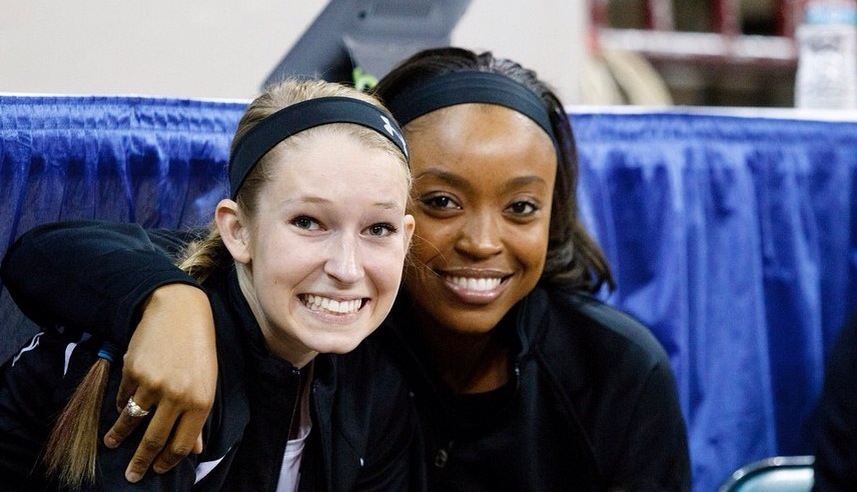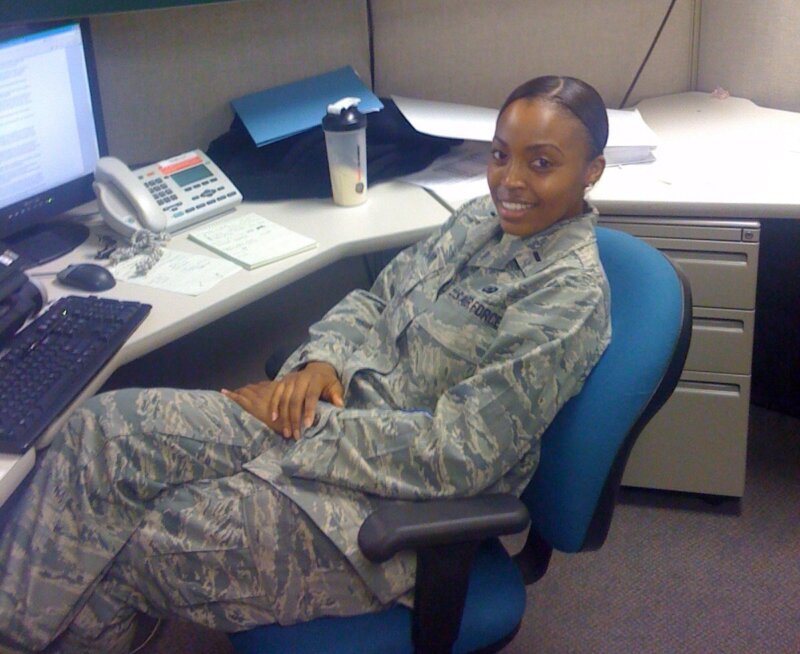Start with a military career. Add high-level technical and cybersecurity expertise. Blend in experience on Wall Street. Season with a relentless work ethic. Finish with a passion for diversity, equity, and inclusion (DEI) in the workplace and the world. What you have is a unique person with a broad set of skills. When Trier Bryant ’02 speaks, people listen.
Bryant is 20 years out of Colorado Academy, and her résumé includes the U.S. Air Force and some companies that are international household names: Goldman Sachs and Twitter.
She has come a long way since she enrolled at CA after Spring Break in Seventh Grade. She had lived all around the world, changing schools whenever her parents moved for their careers, and she came to CA with English as her third language after German and Flemish.
During her Upper School years, she found a home on the Volleyball court, and she built connections that mattered to her—with Volleyball coaches Guy Garcia and Bob Ulrich, and with English teacher Anne Strobridge.
“Not everyone can give you tough love in a way that doesn’t feel patronizing,” Bryant says. “Ms. Strobridge loved softly in a tough way. She was one of those people who believed in me more than I believed in myself at that moment. You don’t need a lot of people like that in your lifetime, but they can change your life.”
Today, Bryant has people who tell her that’s how she makes them feel. She has become the life-changer. And it all started with her first job, which she describes as “one of the bigger professional failures” in her life.
U.S. Air Force Academy

After graduating from CA, Bryant headed to the U.S. Air Force Academy, where she majored in systems engineering and played volleyball. After graduation, where she was commissioned as a Second Lieutenant, the Academy requested that she stay to implement the recommendations she had made in her senior capstone project. Her project examined diversity—or “lack thereof,” she says—in all branches of the military, particularly among commissioned officers.
“The data was evident,” she says. “I think they thought, ‘Well, let’s let this Second Lieutenant stay and see how badly she messes it up.’”

She set out to move the needle toward increasing diversity at the Air Force Academy with the next incoming class. In the process, she went into communities where, she says, her “eyes were opened to larger systemic issues in our country,” and she learned that her initiative was not as simple as just handing out scholarships to high school seniors.
“I realized that meeting juniors and seniors in high school is too late,” she says. “You have to reach them in elementary and middle school, so they understand what they need to do to qualify. Getting into service academies is more than just great grades.”
She considers her work a “failure” because in the first year, she did not see significant results. It took time. Over the next three to six years, “there was a shift,” she says.
She stayed on Air Force active duty for seven years, continuing her work in DEI and also serving as Cybersecurity Officer. Ultimately, the military opened the door to her next opportunity, a company that was willing to put its money behind its good intentions.
Goldman Sachs
Through the Veterans Integration Program, Bryant joined Goldman Sachs in 2013. She rose quickly through the ranks to become Vice President, Global Diversity Talent Acquisition. In that position, she increased diverse representation across the firm, including gender, race, ethnicity, sexual orientation, and gender identity.
“The company was intensely committed to this work because you can make multiple strong business cases that diverse teams perform better,” she says. “And Goldman is committed to anything that you can show impacts the bottom line.”
Bryant calls Goldman “the best place for me to transition [out of the military] because in some ways, the culture of the company was like the military.” The company “wrapped their arms around veterans.”
“It was an environment where I could have results and impact,” Bryant says. “They just said, ‘We need more, we need more, we need more.’ It was amazing.”
Working at Goldman, Bryant found herself at the dinner table with bankers brokering tech company deals, and, she says, it became clear to her that tech was doing the bare minimum in its DEI efforts. That’s just the sort of challenge that intrigues her.
In 2016, Bryant was offered a leadership role at Twitter and received a Twitter email from the company’s co-founder and then-CEO, Jack Dorsey. She assumed it was a standard automatic reply that went out to all potential hires as a closing tactic. Nonetheless, she thought it was effective, and she told the Chief HR Officer who was hiring her that she was impressed.
“That message came to you straight from the real Jack Dorsey,” the officer said. “You had better reply.”
So Bryant did, sending Dorsey five questions. She asked him how Square could have such a good record on diversity, and Twitter could have such a mediocre record, when he was running both companies. Within 24 hours she heard back from him. His reply? “That’s why we need you at Twitter.”
She spent two-and-a-half years there, building a diversity recruiting team, rebuilding the university hiring team, and standardizing the hiring of engineers. By the time she left, with the title of Global Head of Revenue, G&A (Corporate Functions), University and Diversity Recruiting, she had absorbed the work of multiple people.
“In the military, you never had the luxury of saying no,” she says. “You figure out a way to do it, and you lead your teams to make it happen.”
Stepping into the future
Not one to sit still for very long, Bryant left Twitter to consult and expand her human resources credentials. Just as the COVID-19 pandemic broke out, she was hired as the Chief People Officer at Astra, a space launch start-up in Alameda, Calif. She continued to do HR and DEI consulting on the side and co-founded her own company—Just Work—with the goal of building more equitable, productive, and successful workplaces. She sits on the board for Campaign Zero, a social justice nonprofit grassroots initiative to achieve zero police violence led by DeRay McKesson.
Throughout the time she has been building her career, Bryant has maintained loyalty to individuals at CA. She says she “adores” Bob Ulrich, and even though she and Coach Garcia were often engaged in an argument, “when he asked for something, I showed up.”
“When Guy Garcia got sick and was in a wheelchair and needed an extra set of hands, I drove more than an hour in traffic from Colorado Springs to be an assistant on the team,” she recalls. “Garcia had the big personality that would get me fired up, but Coach Bob was my calm. When he speaks, it is so powerful and meaningful. Coach Bob doesn’t know the impact he had on me.”
Today, Bryant has just started a new position as President of 82-VS, the venture capital arm of Alloy Therapeutics, a biotech firm that, according to its website, works with “exceptional founders, entrepreneurs, and executives-in-residence as well as biotech and pharma partners to develop new medicines.” She is ready to face a new set of challenges, and when she discusses her career path, she no longer talks about “failure.” Instead, you hear the word “love.”
“I am very intentional about what I choose to do,” she says. “When you are in the military, you have no option but to do what you are assigned. Now, I have the luxury to choose, and I don’t take that lightly. I don’t sit in environments that don’t serve a positive purpose. I do what I want, and I do what I love.”
